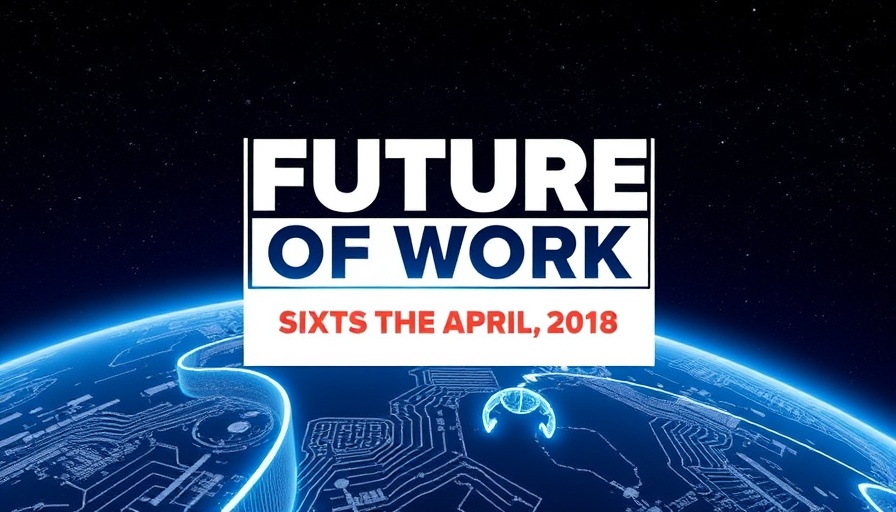
Understanding the Evolving Landscape of Work
As the world rapidly adapts to new pressures and ongoing changes, April's Future of Work Round-Up showcases significant trends that define our working environment today. Employers and employees alike are reconsidering the dynamics of the workplace, influenced by technology, societal expectations, and the natural momentum towards creating more resilient workforces.
The Rise of the Hybrid Generation
In the wake of the pandemic, a 'hybrid generation' is emerging, one characterized by a growing preference for work-life balance and a desire for enhanced connection and wellbeing. A recent report from BSI paints a compelling picture, noting that this demographic prioritizes flexibility in work arrangements, striving to blend professional responsibilities with personal life effectively. This shift challenges traditional work models, urging companies to adapt by fostering environments that prioritize employee welfare.
Inclusion and Diversity—A New Imperative
The ongoing conversation around Diversity, Equity, and Inclusion (DEI) took center stage during a recent podcast featuring Dr. Grace Lordan. As workplace demographics shift and political landscapes evolve, many organizations are reconsidering their DEI strategies. The focus is not only on compliance but on cultivating a culture of respect and genuine inclusion, which, as research suggests, enhances employee satisfaction and retention rates.
The Impact of AI and the Skills Triad
Artificial intelligence continues to reshape job markets globally. Recent insights from the World Economic Forum highlight a crucial 'skills triad' essential for success: carbon intelligence, virtual intelligence, and artificial intelligence skills. Employers are increasingly recognizing that the future workforce must evolve to meet these demands, with upskilling initiatives becoming a cornerstone of strategic planning. Yet, experts warn about the potential short-term spikes in unemployment due to AI job displacement, emphasizing the need for careful management of this transition.
Revolutionizing Skills for Tomorrow
According to LinkedIn's Sue Duke, the skills required for the workforce are predicted to change dramatically—up to 70% by 2030. This shifting landscape demands that businesses collaborate with governments to create educational frameworks that support continuous learning. Beyond just technical skills, the integration of interpersonal skills into training programs is vital.
Addressing Workplace Toxicity
Even as job satisfaction sees improvements, there are rising concerns regarding workplace toxicity, notably around issues of abuse and diminished autonomy. Research suggests that a significant portion of workers feel disconnected and unsupported, underscoring the need for organizations to address these ingrained issues meticulously. Fostering open discussions on mental health and creating supportive networks are essential steps towards enhancing employee wellbeing and preventing burnout.
Practical Insights Into Workforce Management
For organizations navigating these changes, there are actionable insights to consider. Implementing regular feedback mechanisms can help gauge employee sentiment and improve engagement. Prioritizing mental health initiatives, along with providing clear pathways for career development, enables companies to retain talent and elevate job satisfaction levels.
Future Predictions: Thriving in Change
As we look ahead, the future of work holds both tremendous promise and significant challenges. Adaptability, inclusivity, and an unwavering focus on employee wellbeing will be central to success. Organizations that embrace these elements will not only navigate the evolving landscape but thrive within it, emerging stronger and more resilient.
Our exploration into the future of work emphasizes that understanding these trends is not merely informative—it's imperative for businesses aiming to foster a sustainable and prosperous workplace. Engaging with the community and continuously adapting to new realities will be crucial in shaping an inclusive future for all workers.
 Add Row
Add Row  Add
Add 




 Add Row
Add Row  Add
Add 

Write A Comment